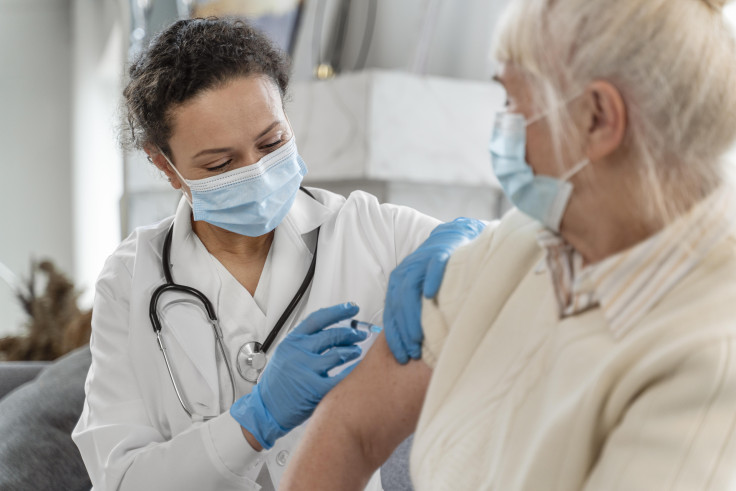Guillain-Barre Syndrome 'More Common Than Expected' In RSV Vaccinated Older Adults: CDC

Guillain-Barré syndrome (GBS), a rare neurological disorder identified as a potential safety concern with vaccination for respiratory syncytial virus (RSV) in older adults, is seen at a "more common than expected" rate, according to a recent report from Centers for Disease Control and Prevention.
While the U.S. Food and Drug Administration (FDA) and the officials from the CDC continue to investigate the risks, the current recommendation is to continue the vaccine as "the estimated benefits of RSV vaccination continued to outweigh potential risks."
"RSV vaccination continues to be recommended for adults aged ≥60 years using shared clinical decision-making. CDC and FDA are conducting active safety evaluations to assess risks for GBS and other adverse events of special interest after RSV vaccination. The results of these studies will help guide future CDC RSV vaccine recommendations," the CDC news release stated.
RSV infection typically affects the lower respiratory tract and manifests with mild, cold-like symptoms. However, certain groups are at increased risk of severe RSV infection, including older adults with chronic medical conditions like heart or lung disease, individuals with weakened immune systems, infants younger than six months, and those born prematurely or with chronic lung or heart disease. Severe RSV infection in these high-risk groups can lead to complications such as bronchiolitis, pneumonia, asthma, chronic obstructive pulmonary disease, or congestive heart failure.
In May 2023, the FDA granted license to GSK's Arexvy and Pfizer's Abrysvo vaccines for RSV prevention. A single dose of RSV vaccination is recommended for adults 60 years of age and older to prevent the infection. For prevention of RSV infection in infants, the CDC recommends administering RSV vaccine during pregnancy or preventive antibodies given to the baby.
However, clinical trials for both RSV vaccines raised Guillain-Barré syndrome as a potential safety concern. According to health estimates, two cases of Guillain-Barre syndrome are reported among 1 million people within three weeks of getting RSV vaccination.
GBS occurs when the body's immune system attacks the nerves. The symptoms begin with weakness and tingling sensation in hands and feet but can quickly escalate to paralysis. Although the exact cause of this auto-immune disorder is not known, many cases are reported post-severe viral infections such as COVID-19 or Zika virus. Most people recover completely from GBS but some cases can even become fatal.
The current CDC report focused on 28 cases of Guillain-Barre syndrome reported in RSV-vaccinated people. The officials said all but one developed symptoms within three weeks. The rate of cases was 5.0 per million vaccines for Pfizer and 1.5 per million for GSK.



























